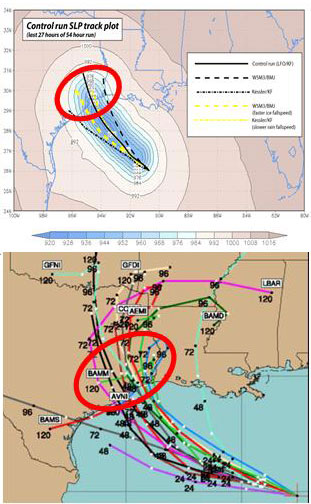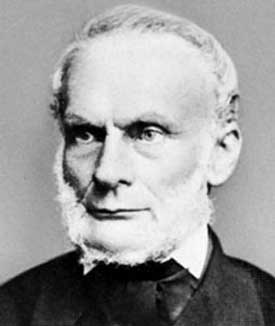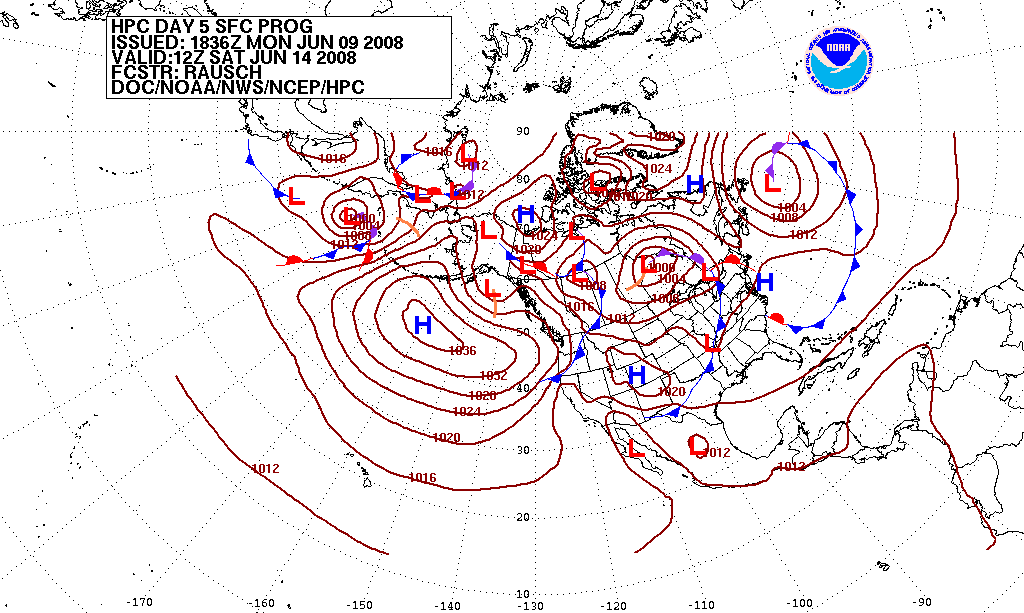|
Forecast Verification
Forecast verification is a subfield of the climate, atmospheric and ocean sciences dealing with validating, verifying and determining the predictive power of prognostic model forecasts. Because of the complexity of these models, forecast verification goes a good deal beyond simple measures of statistical association or mean error calculations. Defining the problem To determine the value of a forecast, we need to measure it against some baseline, or minimally accurate forecast. There are many types of forecast that, while producing impressive-looking skill scores, are nonetheless naive. A "persistence" forecast can still rival even those of the most sophisticated models. An example is: "What is the weather going to be like today? Same as it was yesterday." This could be considered analogous to a "control" experiment. Another example would be a climatological forecast: "What is the weather going to be like today? The same as it was, on average, for all the previous ... [...More Info...] [...Related Items...] OR: [Wikipedia] [Google] [Baidu] |
Climate Science
Climatology (from Greek , ''klima'', "place, zone"; and , '' -logia'') or climate science is the scientific study of Earth's climate, typically defined as weather conditions averaged over a period of at least 30 years. This modern field of study is regarded as a branch of the atmospheric sciences and a subfield of physical geography, which is one of the Earth sciences. Climatology now includes aspects of oceanography and biogeochemistry. The main methods employed by climatologists are the analysis of observations and modelling of the physical processes that determine the climate. The main topics of research are the study of climate variability, mechanisms of climate changes and modern climate change. Basic knowledge of climate can be used within shorter term weather forecasting, for instance about climatic cycles such as the El Niño–Southern Oscillation (ENSO), the Madden–Julian oscillation (MJO), the North Atlantic oscillation (NAO), the Arctic oscillation (AO), th ... [...More Info...] [...Related Items...] OR: [Wikipedia] [Google] [Baidu] |
Scientific Control
A scientific control is an experiment or observation designed to minimize the effects of variables other than the independent variable (i.e. confounding variables). This increases the reliability of the results, often through a comparison between control measurements and the other measurements. Scientific controls are a part of the scientific method. Controlled experiments Controls eliminate alternate explanations of experimental results, especially experimental errors and experimenter bias. Many controls are specific to the type of experiment being performed, as in the molecular markers used in SDS-PAGE experiments, and may simply have the purpose of ensuring that the equipment is working properly. The selection and use of proper controls to ensure that experimental results are valid (for example, absence of confounding variables) can be very difficult. Control measurements may also be used for other purposes: for example, a measurement of a microphone's background noise ... [...More Info...] [...Related Items...] OR: [Wikipedia] [Google] [Baidu] |
El Nino-Southern Oscillation
EL, El or el may refer to: Religion * El (deity), a Semitic word for "God" People * EL (rapper) (born 1983), stage name of Elorm Adablah, a Ghanaian rapper and sound engineer * El DeBarge, music artist * El Franco Lee (1949–2016), American politician * Ephrat Livni (born 1972), American street artist Arts, entertainment, and media Fictional entities * El, a character from the manga series ''Shugo Chara!'' by Peach-Pit * El, short for Eleven, a fictional character in the TV series ''Stranger Things'' * El, family name of Kal-El (Superman) and his father Jor-El in ''Superman'' *E.L. Faldt, character in the road comedy film ''Road Trip'' Literature * ''Él'', 1926 autobiographical novel by Mercedes Pinto * ''Él'' (visual novel), a 2000 Japanese adult visual novel Music * Él Records, an independent record label from the UK founded by Mike Alway * ''Él'' (Lucero album), a 1982 album by Lucero * "Él", Spanish song by Rubén Blades from ''Caminando'' (album) * "Él" (L ... [...More Info...] [...Related Items...] OR: [Wikipedia] [Google] [Baidu] |
Ensemble Forecasting
Ensemble forecasting is a method used in or within numerical weather prediction. Instead of making a single forecast of the most likely weather, a set (or ensemble) of forecasts is produced. This set of forecasts aims to give an indication of the range of possible future states of the atmosphere. Ensemble forecasting is a form of Monte Carlo analysis. The multiple simulations are conducted to account for the two usual sources of uncertainty in forecast models: (1) the errors introduced by the use of imperfect initial conditions, amplified by the chaotic nature of the evolution equations of the atmosphere, which is often referred to as sensitive dependence on initial conditions; and (2) errors introduced because of imperfections in the model formulation, such as the approximate mathematical methods to solve the equations. Ideally, the verified future atmospheric state should fall within the predicted ensemble spread, and the amount of spread should be related to the uncertainty (e ... [...More Info...] [...Related Items...] OR: [Wikipedia] [Google] [Baidu] |
Conditional Entropy
In information theory, the conditional entropy quantifies the amount of information needed to describe the outcome of a random variable Y given that the value of another random variable X is known. Here, information is measured in shannons, nats, or hartleys. The ''entropy of Y conditioned on X'' is written as \Eta(Y, X). Definition The conditional entropy of Y given X is defined as where \mathcal X and \mathcal Y denote the support sets of X and Y. ''Note:'' Here, the convention is that the expression 0 \log 0 should be treated as being equal to zero. This is because \lim_ \theta\, \log \theta = 0. Intuitively, notice that by definition of expected value and of conditional probability, \displaystyle H(Y, X) can be written as H(Y, X) = \mathbb (X,Y)/math>, where f is defined as \displaystyle f(x,y) := -\log\Big(\frac\Big) = -\log(p(y, x)). One can think of \displaystyle f as associating each pair \displaystyle (x, y) with a quantity measuring the information conten ... [...More Info...] [...Related Items...] OR: [Wikipedia] [Google] [Baidu] |
El Nino-Southern Ocscillation
EL, El or el may refer to: Religion * El (deity), a Semitic word for "God" People * EL (rapper) (born 1983), stage name of Elorm Adablah, a Ghanaian rapper and sound engineer * El DeBarge, music artist * El Franco Lee (1949–2016), American politician * Ephrat Livni (born 1972), American street artist Arts, entertainment, and media Fictional entities * El, a character from the manga series ''Shugo Chara!'' by Peach-Pit * El, short for Eleven, a fictional character in the TV series '' Stranger Things'' * El, family name of Kal-El (Superman) and his father Jor-El in '' Superman'' *E.L. Faldt, character in the road comedy film '' Road Trip'' Literature * ''Él'', 1926 autobiographical novel by Mercedes Pinto * ''Él'' (visual novel), a 2000 Japanese adult visual novel Music * Él Records, an independent record label from the UK founded by Mike Alway * ''Él'' (Lucero album), a 1982 album by Lucero * "Él", Spanish song by Rubén Blades from ''Caminando'' (album) * "Él" ... [...More Info...] [...Related Items...] OR: [Wikipedia] [Google] [Baidu] |
Entropy Minimax
Entropy is a scientific concept, as well as a measurable physical property, that is most commonly associated with a state of disorder, randomness, or uncertainty. The term and the concept are used in diverse fields, from classical thermodynamics, where it was first recognized, to the microscopic description of nature in statistical physics, and to the principles of information theory. It has found far-ranging applications in chemistry and physics, in biological systems and their relation to life, in cosmology, economics, sociology, weather science, climate change, and information systems including the transmission of information in telecommunication. The thermodynamic concept was referred to by Scottish scientist and engineer William Rankine in 1850 with the names ''thermodynamic function'' and ''heat-potential''. In 1865, German physicist Rudolf Clausius, one of the leading founders of the field of thermodynamics, defined it as the quotient of an infinitesimal amount of heat ... [...More Info...] [...Related Items...] OR: [Wikipedia] [Google] [Baidu] |
Climatology
Climatology (from Greek , ''klima'', "place, zone"; and , ''-logia'') or climate science is the scientific study of Earth's climate, typically defined as weather conditions averaged over a period of at least 30 years. This modern field of study is regarded as a branch of the atmospheric sciences and a subfield of physical geography, which is one of the Earth sciences. Climatology now includes aspects of oceanography and biogeochemistry. The main methods employed by climatologists are the analysis of observations and modelling of the physical processes that determine the climate. The main topics of research are the study of climate variability, mechanisms of climate changes and modern climate change. Basic knowledge of climate can be used within shorter term weather forecasting, for instance about climatic cycles such as the El Niño–Southern Oscillation (ENSO), the Madden–Julian oscillation (MJO), the North Atlantic oscillation (NAO), the Arctic oscillation (AO), the ... [...More Info...] [...Related Items...] OR: [Wikipedia] [Google] [Baidu] |
Weather Forecasting
Weather forecasting is the application of science and technology to predict the conditions of the atmosphere for a given location and time. People have attempted to predict the weather informally for millennia and formally since the 19th century. Weather forecasts are made by collecting quantitative data about the current state of the atmosphere, land, and ocean and using meteorology to project how the atmosphere will change at a given place. Once calculated manually based mainly upon changes in barometric pressure, current weather conditions, and sky condition or cloud cover, weather forecasting now relies on computer-based models that take many atmospheric factors into account. Human input is still required to pick the best possible forecast model to base the forecast upon, which involves pattern recognition skills, teleconnections, knowledge of model performance, and knowledge of model biases. The inaccuracy of forecasting is due to the chaotic nature of the atmosphere, ... [...More Info...] [...Related Items...] OR: [Wikipedia] [Google] [Baidu] |
Atmospheric Science
Atmospheric science is the study of the Earth's atmosphere and its various inner-working physical processes. Meteorology includes atmospheric chemistry and atmospheric physics with a major focus on weather forecasting. Climatology is the study of atmospheric changes (both long and short-term) that define average climates and their change over time, due to both natural and anthropogenic climate variability. Aeronomy is the study of the upper layers of the atmosphere, where dissociation and ionization are important. Atmospheric science has been extended to the field of planetary science and the study of the atmospheres of the planets and natural satellites of the Solar System. Experimental instruments used in atmospheric science include satellites, rocketsondes, radiosondes, weather balloons, radars, and lasers. The term aerology (from Greek ἀήρ, ''aēr'', " air"; and -λογία, '' -logia'') is sometimes used as an alternative term for the study of Earth's atmosphe ... [...More Info...] [...Related Items...] OR: [Wikipedia] [Google] [Baidu] |
Forecast Skill
In the fields of forecasting and prediction, forecast skill or prediction skill is any measure of the accuracy and/or degree of association of prediction to an observation or estimate of the actual value of what is being predicted (formally, the predictand); it may be quantified as a skill score. In meteorology, more specifically in weather forecasting, skill measures the superiority of a forecast over a simple historical baseline of past observations. The same forecast methodology can result in different skill scores at different places, or even in the same place for different seasons (e.g., spring weather might be driven by erratic local conditions, whereas winter cold snaps might correlate with observable polar winds). Weather forecast skill is often presented in the form of seasonal geographical maps. Forecast skill for single-value forecasts (i.e., time series of a scalar quantity) is commonly represented in terms of metrics such as correlation, root mean squared error, mea ... [...More Info...] [...Related Items...] OR: [Wikipedia] [Google] [Baidu] |
Forecasting
Forecasting is the process of making predictions based on past and present data. Later these can be compared (resolved) against what happens. For example, a company might estimate their revenue in the next year, then compare it against the actual results. Prediction is a similar but more general term. Forecasting might refer to specific formal statistical methods employing time series, cross-sectional or longitudinal data, or alternatively to less formal judgmental methods or the process of prediction and resolution itself. Usage can vary between areas of application: for example, in hydrology the terms "forecast" and "forecasting" are sometimes reserved for estimates of values at certain specific future times, while the term "prediction" is used for more general estimates, such as the number of times floods will occur over a long period. Risk and uncertainty are central to forecasting and prediction; it is generally considered a good practice to indicate the degree of uncertainty ... [...More Info...] [...Related Items...] OR: [Wikipedia] [Google] [Baidu] |
.png)



